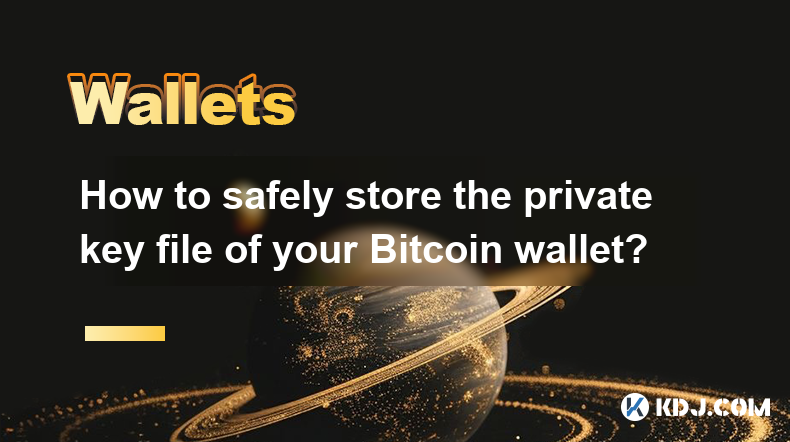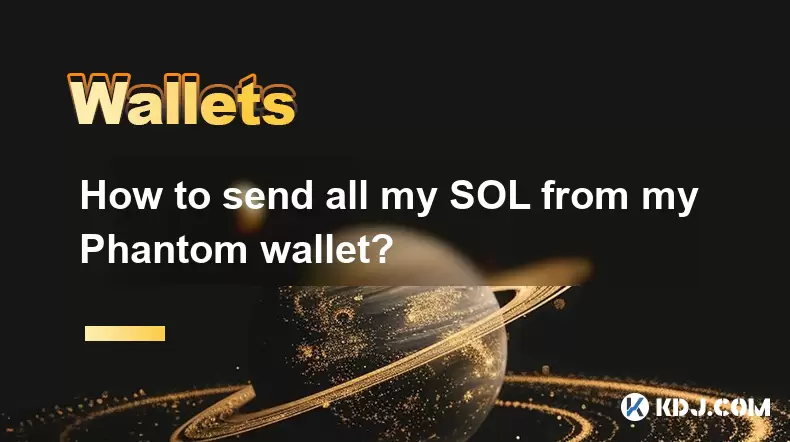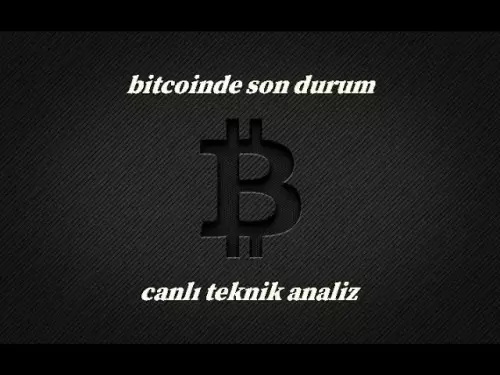-
 Bitcoin
Bitcoin $108,562.4295
0.46% -
 Ethereum
Ethereum $2,533.9553
1.52% -
 Tether USDt
Tether USDt $1.0002
-0.01% -
 XRP
XRP $2.2542
2.23% -
 BNB
BNB $662.4567
1.48% -
 Solana
Solana $151.4114
3.48% -
 USDC
USDC $0.9999
0.00% -
 TRON
TRON $0.2860
0.91% -
 Dogecoin
Dogecoin $0.1685
3.72% -
 Cardano
Cardano $0.5809
1.63% -
 Hyperliquid
Hyperliquid $39.2916
1.85% -
 Sui
Sui $2.8874
0.85% -
 Bitcoin Cash
Bitcoin Cash $496.5801
2.72% -
 Chainlink
Chainlink $13.3582
2.48% -
 UNUS SED LEO
UNUS SED LEO $9.0279
0.07% -
 Avalanche
Avalanche $18.0773
2.30% -
 Stellar
Stellar $0.2426
3.05% -
 Toncoin
Toncoin $2.9086
6.01% -
 Shiba Inu
Shiba Inu $0.0...01170
2.97% -
 Hedera
Hedera $0.1587
3.47% -
 Litecoin
Litecoin $87.4596
1.13% -
 Monero
Monero $317.0425
0.73% -
 Polkadot
Polkadot $3.3778
1.90% -
 Dai
Dai $0.9999
-0.01% -
 Ethena USDe
Ethena USDe $1.0001
-0.01% -
 Bitget Token
Bitget Token $4.4095
0.63% -
 Uniswap
Uniswap $7.3593
6.80% -
 Pepe
Pepe $0.0...09910
3.64% -
 Aave
Aave $274.7388
2.68% -
 Pi
Pi $0.4607
0.48%
How to safely store the private key file of your Bitcoin wallet?
Protecting your Bitcoin requires safeguarding your private key; loss means irreversible loss of funds. Hardware wallets offer superior security, but paper wallets and encrypted files are alternatives, each with inherent risks. Multiple secure backups are crucial.
Mar 22, 2025 at 08:21 pm

How to Safely Store the Private Key File of Your Bitcoin Wallet?
Securing your Bitcoin private key is paramount. Loss of your private key means irreversible loss of access to your Bitcoin. This article details various methods to safely store your private key file, emphasizing the importance of multiple layers of security. Never underestimate the risk involved; your Bitcoin's security rests solely on the security of your private key.
Understanding the Risk:
Your Bitcoin private key is a cryptographic secret. It's a string of characters that proves your ownership of your Bitcoin. Anyone with access to your private key can spend your Bitcoin. There is no recovery mechanism if you lose it. This is why secure storage is critical. Compromising your private key can lead to significant financial loss. Therefore, understanding the risks associated with its storage is the first step towards secure management.
Methods for Storing Your Private Key File:
There are several methods to store your private key file securely, each with its own advantages and disadvantages. Choosing the right method depends on your technical expertise and risk tolerance.
- Hardware Wallets: Hardware wallets are physical devices designed specifically for storing cryptocurrency private keys. They offer the highest level of security because the private keys never leave the device. They are offline and immune to malware attacks. Reputable manufacturers like Ledger and Trezor offer robust solutions.
- Paper Wallets: A paper wallet involves printing your public and private keys onto paper. This method offers excellent security if stored correctly in a secure, fireproof, and waterproof location. However, physical loss or damage renders the keys unusable. Carefully follow instructions to ensure correct generation and printing.
- Encrypted Files on Secure Devices: Storing your private key on a computer or external hard drive is possible, but requires strong encryption. Use robust encryption software like VeraCrypt to create an encrypted container for your private key. Remember to secure the access key to the encrypted container as diligently as the private key itself.
- Multiple Copies in Different Locations: Storing multiple copies of your private key in different, secure locations minimizes the risk of total loss. This approach uses redundancy to protect against unforeseen events like theft or natural disasters. However, ensure each copy is secured appropriately.
Best Practices for Secure Storage:
Regardless of the chosen method, several best practices must be followed to enhance security:
- Use Strong Passwords/Passphrases: If using encryption, choose a strong, unique password or passphrase. Avoid using easily guessable information. Password managers can help create and manage strong, unique passwords.
- Regular Backups (with caution): Back up your private key, but keep the backups separate and secure, using different methods for different copies. Avoid storing backups on easily accessible devices.
- Offline Storage: Keep your private key offline as much as possible. Avoid connecting your storage device to potentially compromised computers or networks.
- Physical Security: If using paper wallets, store them in a safe, fireproof, and waterproof location. Consider using a safety deposit box.
- Verification: Before entrusting your Bitcoin to any method, thoroughly verify its legitimacy and security. Research the hardware wallet manufacturer, software provider, or service thoroughly. Read reviews and look for reputable sources.
Frequently Asked Questions (FAQs):
Q: What is the safest way to store my Bitcoin private key?
A: The safest method is generally considered to be a reputable hardware wallet, kept offline and secured physically.
Q: Can I store my private key on a cloud service?
A: Storing your private key on a cloud service is strongly discouraged. Cloud services are vulnerable to hacking and data breaches.
Q: What happens if I lose my private key?
A: If you lose your private key, your Bitcoin is effectively lost. There is no way to recover it.
Q: Are paper wallets truly secure?
A: Paper wallets can be very secure if handled correctly and stored in a safe place. However, they are vulnerable to physical damage or theft.
Q: How can I protect my private key from malware?
A: Use a dedicated, offline computer to manage your private keys, and use anti-malware software on any computer that may have access to your key files. A hardware wallet is the most effective protection against malware.
Q: What should I do if I suspect my private key has been compromised?
A: Immediately secure your funds by transferring your Bitcoin to a new, secure wallet. Change all related passwords and investigate the potential compromise.
Q: Is it safe to share my private key with anyone?
A: Never share your private key with anyone. Anyone with access to your private key can steal your Bitcoin.
Q: What are the risks associated with using an encrypted file for storage?
A: The risks include loss of the encryption key, vulnerability of the storage device to malware, and the possibility of the encryption software itself having vulnerabilities. This method is less secure than a hardware wallet or paper wallet.
Q: How often should I back up my private key?
A: The frequency of backups depends on your risk tolerance and the method of storage. However, regularly backing up your private key is essential, and the copies should be stored in different, secure locations. Remember that each backup also increases the risk of compromise.
Disclaimer:info@kdj.com
The information provided is not trading advice. kdj.com does not assume any responsibility for any investments made based on the information provided in this article. Cryptocurrencies are highly volatile and it is highly recommended that you invest with caution after thorough research!
If you believe that the content used on this website infringes your copyright, please contact us immediately (info@kdj.com) and we will delete it promptly.
- Drake, Bitcoin, and Mainstream Music: A New Era?
- 2025-07-07 12:30:12
- Meme Coins, ROI Potential, 2025 Selection: What's Hot and What's Not?
- 2025-07-07 12:30:12
- Bitcoin, Ethereum, and Dogecoin: Navigating the Crypto Landscape in a Wild Week
- 2025-07-07 12:50:11
- Meme Coin Mania: Explosive Picks and Top Buys in 2025
- 2025-07-07 12:50:11
- Bitcoin, Ethereum, and the Cryptocurrency Market: Riding the Wave of Innovation
- 2025-07-07 12:55:12
- Elon Musk, Bitcoin, and Crypto News: A 2025 Perspective
- 2025-07-07 13:10:12
Related knowledge

How to cancel a pending transaction in Phantom wallet?
Jul 03,2025 at 07:21pm
Understanding Pending Transactions in Phantom WalletA pending transaction in the Phantom wallet occurs when a user initiates a transfer or interaction with the Solana blockchain, but it hasn't yet been confirmed by the network. This can happen due to various reasons such as low transaction fees, network congestion, or incorrect gas settings. It's import...

How to see the estimated value of my tokens in Phantom wallet?
Jul 04,2025 at 12:21am
What is Phantom Wallet?Phantom wallet is one of the most popular cryptocurrency wallets designed for the Solana blockchain. It allows users to store, send, receive, and manage various tokens built on Solana, including SPL tokens and NFTs. The wallet offers a user-friendly interface, making it accessible for both beginners and advanced users in the crypt...

How to lock my Phantom wallet extension?
Jul 03,2025 at 11:14am
What Is the Phantom Wallet and Why Lock It?The Phantom wallet is a popular non-custodial cryptocurrency wallet designed for interacting with the Solana blockchain. Supporting both browser extensions and mobile apps, Phantom allows users to store, send, receive, and stake SOL tokens, as well as interact with decentralized applications (dApps). Securing y...

Does Phantom wallet offer two-factor authentication (2FA)?
Jul 03,2025 at 09:00am
Understanding Phantom Wallet and Its Security FeaturesPhantom wallet is a widely used non-custodial cryptocurrency wallet that supports the Solana blockchain. It allows users to store, send, receive, and interact with decentralized applications (dApps) seamlessly. As security is a top priority for any crypto wallet user, security features like two-facto...

How to send all my SOL from my Phantom wallet?
Jul 06,2025 at 10:00am
Preparing to Send SOL from Your Phantom WalletBefore initiating any transaction, it is crucial to ensure that your Phantom wallet is fully set up and connected to the correct network. Phantom supports multiple networks, but for sending SOL, you must be on the Solana blockchain. Confirm this by checking the network indicator in the top-right corner of th...

What is "rent" on Solana and how does it affect my Phantom wallet?
Jul 02,2025 at 08:35pm
Understanding 'Rent' on SolanaIn the context of Solana, the term 'rent' refers to a storage fee that users pay for maintaining data on the blockchain. Unlike Ethereum, where storage costs are paid once via gas fees during contract deployment, Solana implements a recurring cost model to ensure efficient usage of network resources. This means that any acc...

How to cancel a pending transaction in Phantom wallet?
Jul 03,2025 at 07:21pm
Understanding Pending Transactions in Phantom WalletA pending transaction in the Phantom wallet occurs when a user initiates a transfer or interaction with the Solana blockchain, but it hasn't yet been confirmed by the network. This can happen due to various reasons such as low transaction fees, network congestion, or incorrect gas settings. It's import...

How to see the estimated value of my tokens in Phantom wallet?
Jul 04,2025 at 12:21am
What is Phantom Wallet?Phantom wallet is one of the most popular cryptocurrency wallets designed for the Solana blockchain. It allows users to store, send, receive, and manage various tokens built on Solana, including SPL tokens and NFTs. The wallet offers a user-friendly interface, making it accessible for both beginners and advanced users in the crypt...

How to lock my Phantom wallet extension?
Jul 03,2025 at 11:14am
What Is the Phantom Wallet and Why Lock It?The Phantom wallet is a popular non-custodial cryptocurrency wallet designed for interacting with the Solana blockchain. Supporting both browser extensions and mobile apps, Phantom allows users to store, send, receive, and stake SOL tokens, as well as interact with decentralized applications (dApps). Securing y...

Does Phantom wallet offer two-factor authentication (2FA)?
Jul 03,2025 at 09:00am
Understanding Phantom Wallet and Its Security FeaturesPhantom wallet is a widely used non-custodial cryptocurrency wallet that supports the Solana blockchain. It allows users to store, send, receive, and interact with decentralized applications (dApps) seamlessly. As security is a top priority for any crypto wallet user, security features like two-facto...

How to send all my SOL from my Phantom wallet?
Jul 06,2025 at 10:00am
Preparing to Send SOL from Your Phantom WalletBefore initiating any transaction, it is crucial to ensure that your Phantom wallet is fully set up and connected to the correct network. Phantom supports multiple networks, but for sending SOL, you must be on the Solana blockchain. Confirm this by checking the network indicator in the top-right corner of th...

What is "rent" on Solana and how does it affect my Phantom wallet?
Jul 02,2025 at 08:35pm
Understanding 'Rent' on SolanaIn the context of Solana, the term 'rent' refers to a storage fee that users pay for maintaining data on the blockchain. Unlike Ethereum, where storage costs are paid once via gas fees during contract deployment, Solana implements a recurring cost model to ensure efficient usage of network resources. This means that any acc...
See all articles

























































































